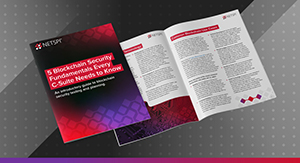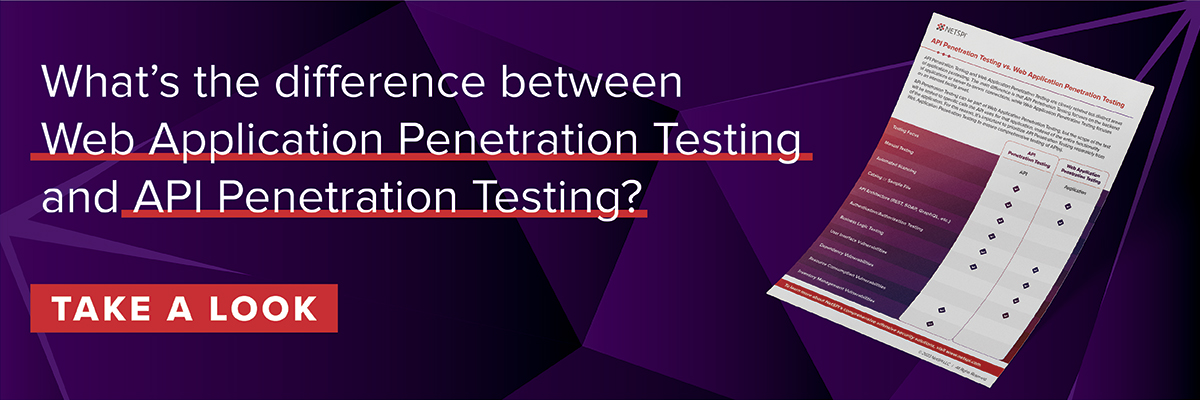API Penetration Testing
Websites and applications are becoming increasingly complex, requiring more API calls to meet the desired functionality. While this creates a great UX for customers, it also results in more pathways that malicious actors can use to access an environment. API Pentesting is critical for a modern security program. It helps security and development teams inventory their APIs, evaluate them for security vulnerabilities, and provide actionable recommendations for focused improvement to a company’s security posture.
Our API Penetration Testing Focuses On:
- Attacking API authentication mechanism(s)
- Identifying access control weaknesses
- API server security configuration testing
- Analyzing exposed information to identify excessive data exposure
- API endpoint fuzzing
- Identifying server-side request forgery (SSRF) issues
- Rate limiting functionality testing


Our Approach to API Pentesting
-
Unauthenticated Testing
Our team of offensive security specialists conducts comprehensive vulnerability scanning of target API(s) alongside manual testing and verification of exploitable and high-severity vulnerabilities. This test includes the network and system layers in addition to the application tier.
-
Authenticated Testing
NetSPI applies business logic and sophisticated manual techniques to manipulate the API(s) in undesired or unexpected ways, including elevating user privilege, manipulating data, and gaining access to restricted functionality or data. We perform testing for each user type that exists, as well as targeting the OWASP Top 10 for API vulnerabilities, and application logic weaknesses.
After identifying the strengths and weaknesses of the API(s) and the processes behind API development and security programs, we’ll suggest strategies for improvement and assign priority to deficiencies. We’ll also collaborate with stakeholders so that notable findings may be compared against program goals and compliance requirements.
Drilling Down on the OWASP Top 10
An important part of NetSPI’s API Penetration Testing is targeting the OWASP Top API security vulnerabilities.
The OWASP Top 10 is a list of the most critical cybersecurity risks to APIs, identified by an industry consensus. Adopting the OWASP Top 10 in your software development and application security testing processes is a strong step toward improving application security for your business, your partners, and your customers.
Use the OWASP Top 10 to Strengthen API Security
| 1 | Broken Object Level Authorization |
| 2 | Broken Authentication |
| 3 | Broken Object Property Level Authorization |
| 4 | Unrestricted Resource Consumption |
| 5 | Broken Function Level Authorization |
| 6 | Unrestricted Access to Sensitive Business Flows |
| 7 | Server Side Request Forgery |
| 8 | Security Misconfiguration |
| 9 | Improper Inventory Management |
| 10 | Unsafe Consumption of APIs |
Testing Annually
Tested
Reported
Better API Security is A Click Away
Organized. Proactive. Easy. This is how our clients describe working with NetSPI for application pentesting. Whether you need to test a specific application, or incorporate API security into your overall development process, our offensive security specialists will put our knowledge to work for your business.


